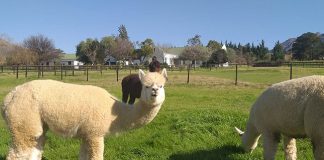According to PROA, if the rhino horn trade is not legalised soon, at current rates of rhino poaching, these animals will be extinct in the wild by 2023. PROA founder and chairperson Pelham Jones was responding to news that the minister of Water and Environmental Affairs, Edna Molewa, had recently said that the government is considering approaching the Convention on International Trade in Endangered Species (CITES) in March 2013 to establish whether it will be feasible to submit a formal application to have the trade in rhino horns from SA legalised internationally.
“In a letter that we submitted to the minister we stressed to her that the only way to collapse the illegal trade is to provide for a legal trade,” said Jones. He presented a similar proposal at an Emergency Rhino Poaching Summit in Kenya, and “didn’t get a negative response from the seven rhino range states in sub-equatorial Africa.” News24 reported that SA has an estimated 20t stockpile of rhino horn under tight security and that this could be sold at around R500 000/kg if the trade ban is lifted.
Jones said the income from the strictly controlled sale of this stockpile could be used to enhance rhino conservation in SA. “Over the past 30 years that the CITES moratorium on rhino horn trade has been in place, between 60 000 and 80 000 rhino have been poached in Africa,” added Jones. If our politicians “wait until CITES 2016 to submit a formal application for the lifting of the moratorium, imagine how many more rhino would have been poached in the interim.”
The Department of Environmental Affairs reported that, as of 7 May, 210 rhino had been poached in SA. In the same period, 128 arrests were made nationally. Of these arrests, 41 were made in Mpumalanga, 31 in the Kruger National Park, 15 in North West and 13 in Gauteng. Kruger National Park remains by far the most targeted rhino habitat, with 119 of these animals poached there since 1 January 2012.
Concern
“The ongoing poaching of our rhino population is a source of great concern to government and various stakeholders,” said Molewa in her 2012/2013 budget speech to parliament. “It requires of us all as a collective to take drastic measures to help combat it.” Jones warned that, “If something isn’t done urgently, then we won’t have any rhino left for future generations to appreciate.” He asked the concerned public to learn how to help fight rhino poaching by visiting www.stoprhinopoaching.com.











